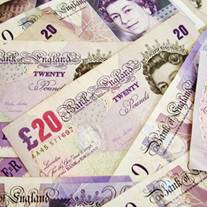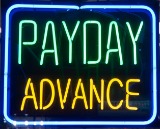While every effort's been made to ensure this article's accuracy, it doesn't constitute legal advice tailored to your individual circumstances. If you act on it, you acknowledge that you do so at your own risk. We can't assume responsibility and don't accept liability for any damage or loss which may arise as a result of your reliance upon it.
 If you get an unfair ticket in a private (different rules apply to public tickets) car park.... don't pay it. These supposed 'fines' are the new Wild West, and whether the cowboys do it at supermarkets, retail parks, hospitals or housing estates, they're often unenforceable. This is a step by step guide on how to fight them.
If you get an unfair ticket in a private (different rules apply to public tickets) car park.... don't pay it. These supposed 'fines' are the new Wild West, and whether the cowboys do it at supermarkets, retail parks, hospitals or housing estates, they're often unenforceable. This is a step by step guide on how to fight them.
In This guide
Also see
Quick Do's and Don'ts before you begin
DO understand the law
Under contract law in every country in the UK, private firms can give you a ticket, clamp you or remove your vehicle when you break, in their eyes, a contract formed between yourself and the landowner to allow you to park on their property.
Typically, this is because you've parked in a reserved place, overstayed or not paid in a chargeable space, or incorrectly positioned your car.
DO double check what type of ticket you've got!
Parking tickets can be both from official public bodies, like local councils and the police, or private companies. This guide is ONLY about fighting unfair tickets issued when parking on private land (eg, a supermarket car park). If your ticket is from a public body eg council, read the Appeal Council Parking Tickets guide.
DON'T fall for any disguises
Some private tickets do better impressions than Jon Culshaw. To add legitimacy, their phrasing and design is often carefully contrived to give the sense it is a police or council ticket. They often use chequered lines or call them PCNs, mimicking the Penalty Charge Notice acronym of official council tickets. Yet, if it's from the police or council it will say so and it's a completely different process and set of rules.
DO remember this is about unfair tickets
Of course, landowners have a right to charge for and police proper parking. If you've broken those rules, and you think the ticket isn't exorbitant, I'd urge you to pay up.
If you DO think it's exorbitant, one route is to simply pay what you think is right, eg the equivalent to what you'd be charged on a public road.
Yet many unscrupulous operatives try and catch people out for profit. So if you've had a ticket you believe is unjust, as is ridiculously common, don't worry, you can fight it.
DO print the Glove Box Parking Guide
Our printable A4 guide is packed full of tips on what to do if you're ticketed and how to avoid tickets by parking right in the first place. Print and keep in your glove box in case of the dreaded moment when a ticket's slapped on your windscreen, or worse, your car's clamped or been towed.
Know the rules
It's not the ability of private companies to issue tickets in itself that's a problem, more the almost entirely unregulated, unstructured system which puts unnecessary power in potentially unscrupulous hands. Even where the company whose land your parking on is legitimate, often they employ third-party management firms to run their car parks, with apparently little scrutiny of their methods.
Private firms can charge what they like...
Private tickets are unregulated so, in theory, companies can charge what they want. However, around a third (650 out of approx 2,000) are members of the British Parking Association (BPA) which has a code of practice for ticket issuing, clamping and car removal.
 The BPA's code currently has a maximum charge limit - though those maximums are higher than many council charges. In addition, it also urges operators to deal with what it calls "appeals".
The BPA's code currently has a maximum charge limit - though those maximums are higher than many council charges. In addition, it also urges operators to deal with what it calls "appeals".
These codes aren't enforceable. Though if you have a bad experience, it's worth reporting it to the BPA. It mightn't help you, but may stop others suffering something similar. Further details on Complaining to the BPA.
And don't ever think of private parking tickets as "fines". They're not. These companies have no official right to fine you, though they may try and make you think it. All they're doing is sending you a notice for what they deem as a breach of contract.
...but you can fight back
Anecdotal reports suggest most people taking on unfair private company parking tickets win. This is the flip side to the lack of regulation; while firms feel they can charge willy-nilly, we can refute it on the same basis.
Importantly, though, as there are no set regulations, beating the cowboys isn't an exact science. This strategy is based on the opinion of a number of legal experts, who don't always agree, plus large amounts of feedback. Please let us know if you've a different method or experience, to help us develop this guide.

Quite simply, don't respond to just getting a ticket slapped on your windscreen or sent via the post. Wait to see if you get a court papers in the post demanding payment; often they don't follow through (though if you've been clamped/towed you'll need to pay to get the vehicle released see the clamping & towed away section).
This is all about contract law. A firm will allege you breached the 'contract' you tacitly entered when parking, though you say you didn't. To press its case, it'd need to take you to court (don't worry, it's not a criminal problem, just a contract dispute). Yet the important point to remember is...
... let it do the chasing! Trying to reclaim money already paid isn't easy, far easier to dispute it by not paying.
While these parking tickets are flawed it's still useful to gather evidence in case you do need to dispute the ticket. If it does follow up with an invoice or letter, you may then want to respond, jump to the parking tickets section below for more.
Don't miss updates to this guide! Get MoneySavingExpert's free, spam-free weekly email full of guides & loopholes
Gathering evidence
Although you may not need to rely on it, it's important not to waste any time when gathering evidence, just in case you need to argue your case later. Your evidence should be contemporaneous to truly reflect the situation when you got your ticket, so gather as much as possible, as without it, getting your money back may be more difficult.
Take photographs
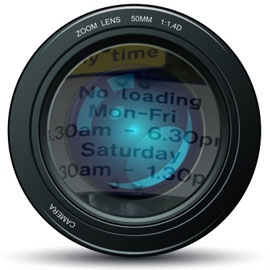 If you can, photograph the scene, as it'll help explain your argument. Don't worry about the type of camera, even a mobile phone picture will do, providing it's clear. Things to photograph include:
If you can, photograph the scene, as it'll help explain your argument. Don't worry about the type of camera, even a mobile phone picture will do, providing it's clear. Things to photograph include:
- Road signs. Any unclear signs such as suspended bay signs.
- Road markings. Any unclear bay markings or yellow/red lines.
- Lack of signs/markings. Areas without signs or markings you believe should be there.
- Your car. If you're disputing where you were alleged to have parked, take a picture of your car and capture the immediate area around it.
- The meter. If you were parked in a paid-for bay, keep your ticket or take a photo of the meter if it still registers the time your paid-for parking expired.
Gather the paperwork
 Any documentary evidence you can gather is also useful. Sometimes this can be tricky to get, but everything that proves your part of the story is helpful. This includes:
Any documentary evidence you can gather is also useful. Sometimes this can be tricky to get, but everything that proves your part of the story is helpful. This includes:
- Keep copies of all correspondence. Things can sometimes drag on so keep the ticket itself and any correspondence safe.
- Proof of mitigating circumstances. Keep anything that may be relevant to you parking in that space.
- Witness statements. If anyone will corroborate your story get their details and ask them to sign a statement. For example, if it was impossible to see the signs or you were loading or unloading goods from your car and you stayed within the rules.
How to fight private parking tickets
What to do depends on the situation and your attitude towards a confrontation. Many more militant anti-private parking protestors adopt a simple "never reply" strategy, ie. don't respond, don't acknowledge, no matter what's sent to you, unless in the very rare cases of a court action.
That tactic can and does work for many, though as always there are no guarantees, but if not the tactics below offer further options.
If you own the car but weren't driving
Unlike official parking tickets, when on private land, it is the DRIVER, not the owner, who is liable, because a contract to park is formed between the landowner and the driver.
An invoice landing on your doormat may be the first you know of a parking ticket, but it's no reason to feel alarmed. The most important thing to understand is ...
If you weren't driving, you're not liable and you've no need to tell who was
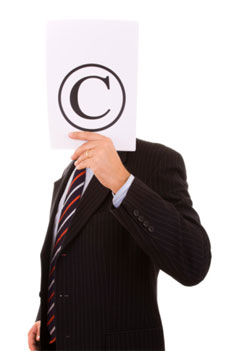 If you weren't the driver simply state that, as the owner, you're not liable for any costs, and you're not prepared to state who was driving and are under no obligation to do so. Hopefully, that'll get the message across and they won't contact you again. It's best to do this in writing so you have a record of what was said.
If you weren't the driver simply state that, as the owner, you're not liable for any costs, and you're not prepared to state who was driving and are under no obligation to do so. Hopefully, that'll get the message across and they won't contact you again. It's best to do this in writing so you have a record of what was said.
However, if you were driving don't be tempted to lie: it could land you in serious trouble in the unlikely event the case ever went to court and witness statements or CCTV proved the opposite.
If the firms contacts you again, write back politely asking them not to harass you, stating you've made it clear the ticket's nothing to do with you and it should back off. If it continues to hound you, resend the letter and threaten that you will report the matter to the authorities if they don't stop.
To help, here's a template covering all of the above situations:
If you were driving but don't own the car
Technically, you're liable for the ticket. Courtesy suggests you don't hide it. Speak to the owner and check if they're happy to help you fight the ticket if an invoice arrives addressed to them.
Perhaps, the best thing to do is show them this guide. Assure them there's no chance of them being lumbered with any debt, and let them know what to do if chased for a payment (why not offer to draft and sort all the letters for them?)
Don't want any confrontation?
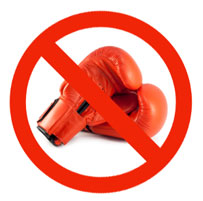 In most cases, ignoring the unfair ticket is the right tactic (see below) though, of course, there are no guarantees. Yet, if you get scared or nervous when letters demanding money or threatening court action come through the door, even though it's mainly posturing, you may prefer to play it safe.
In most cases, ignoring the unfair ticket is the right tactic (see below) though, of course, there are no guarantees. Yet, if you get scared or nervous when letters demanding money or threatening court action come through the door, even though it's mainly posturing, you may prefer to play it safe.
This means you simply pay the ticket and appeal the process. Yet be warned, doing this means you accede to the authority of the agency issuing the ticket and once you've done that you are stuck within its protocols and systems. For full info on how to do this, click the link below.
How to appeal a ticket
Writing to the parking company and landowner
Any parking company who is a member of the British Parking Association should have a formal disputes process and if it does, it'll be explained on the back of the ticket.
If there is, find the address listed on the ticket to make an 'appeal' within the stipulated time frame, which will usually be 28 days.
If there's no address it's still worth writing to the firm concerned. First contact the landowner letting them know about your complaint and ask for a suitable address to make your case.
The template letters in the Militant Approach section below may help. You may also find it useful to read the Clamping and Towing section if you have already paid the charge as this covers getting a refund from the parking company.
If the ticket issuer has behaved really badly, always report it to the landowner who employs it especially if it's a big company with a reputation to protect. It may be horrified at their antics and intervene to get the ticket cancelled. Read the £95 parking ticket for parking too long news piece as an example.
If you are ultra cautious and want to pay then do so quickly as some parking firms offer discounts if you pay early.
The Militant Approach
Assuming you ignored the ticket when it was received, it's likely in most cases you won't have to pay the fee. After ignoring the ticket one of two things will then happen:
-
It doesn't invoice you
In quite a number of cases they don't follow up or send you an invoice. In which case that's it, you've won and don't need to pay the ticket, simple as that.
-
It does!
If you receive an invoice you can either continue to ignore it or write back and dispute the ticket, yet importantly, in any correspondence...
... don't state you're 'appealing', merely that you're refusing to pay
Effectively, a ticket from a private firm is an invoice as, in their words, by overstaying your welcome on their land you have agreed to pay a particular sum. By stating you are appealing, it gives unnecessary legitimacy to the ticket. Note - we've only used the word 'appeal' in this guide when quoting correspondence from private parking firms and landowners.
If you chose to reply, from this point on we're in negotiation territory. Some report that replying at all can mean the ticketers become more persistant, so be ready for this, but there are no hard or fast rules.
Effectively you need to make it realise you're going to be hard work and it's not going to get the money from you without the time and expense of court action. And just to put your mind at rest, as there's no credit involved, it can't hit your credit rating either (unless in the extreme circumstance you ultimately refuse to pay a court order).
A parking company has NO POWER to force you to pay an invoice unless it first chooses to take you to court, which is a hassle, and then it needs to win the case which is by no means certain. Full info and template letters below.
 Step-by-step guide to disputing tickets
Step-by-step guide to disputing tickets
Click to expand it
The most important point to start with is to prepare your argument. There are five main categories that will apply and you can use them separately or in combination.
Step 1. The five main arguments against tickets
The aim is to write back, up the ante, show you know your stuff and make it decide whether it's worth the hassle of pushing you. Your letters should explain why you dispute the charge, in the unlikely event it go to court (though there's a lot more due to happen before then), but also avoid giving them details to use against you. The five main arguments are below:
-
You didn't break any rules
If you didn't do what the ticket claims, then it's been wrongly issued. For example, if you were not blocking an entrance or parked over two spaces, had paid correctly or any other reason, simply gather the evidence.
-
No signage or insufficient signage
The basis for the ticket is that you agreed to what the notice stated. For example, if there was a massive conspicuous notice saying "Parking: £50 an hour, you'll be clamped if you don't pay, and charged another £100" and you saw the notice and parked, it's deemed you accepted what it said.
Yet if you didn't see the sign, you couldn't have accepted it. Therefore, if there wasn't a notice; it was hidden out of sight, such as up a tall tree; or was the size of a peanut, you've a strong case.
Only having a sign at a car park's entrance, isn't suitable as it's arguable when turning or manoeuvring you'll need to be concentrating on your driving to stay safe, not reading parking signs. Signs need to be visible from all over the car park to be sufficient.
If the signage isn't appropriate, then refuse to pay on this basis, but ensure you have photos of the signs to use as evidence if relevant.
-
If you weren't on private land
Staggeringly, this can happen. If you weren't on private land (eg, you were on a public road or in a council car park) then refuse to pay. Take pictures of your car and of the surrounding area so it is clear you were parked outside of the landowner's jurisdiction.
-
Are there mitigating circumstances?
If you accept you parked incorrectly but there are mitigating circumstances why you shouldn't pay the charge then explain them. These may include attending to an emergency while parked or breaking down. See a list of typical mitigating circumstances.
In addition, if you cannot afford to pay then say so. You never know, you'll sometimes find a kind-hearted person who will let you off. Make sure you submit all financial evidence to highlight your plight.
-
The catch-all: The charge levied is disproportionate
Some lawyers argue that the charge must reflect the loss to the landowner by you parking there. And can a company really justify a penalty of up to £150?
If parking costs a pound an hour and you overstay by 30 minutes, it's arguable paying 50p is fair, and perhaps a couple of quid on top to justify the admin costs. If parking's free, the firm hasn't technically lost anything.
However. there are occasions this is countered. For example, during supermarket or retail outlet busy periods, they can claim you've cost them revenue by not allowing other people to use that space and access the store. Even so, that will only happen if the company chooses to pursue you and they'll still need to prove it. There is a legal argument to play here for those who are interested:
the unfair contract argument .There are different thoughts on this argument, however. One senior lawyer says it's nonsense but another says it's strong, proving the point this is not an exact science. Yet if you want to be militant, there's no harm in giving it a try, as it may help your case.
Step 2. How to dispute a ticket
If one or more of the above grounds apply, you can write explaining it, either to the address on the ticket, the address you've found after contacting the landowner or the address on a demand for payment. You could also write to the manager of the store as they can often override a ticket. You can also choose to ignore the letters if you like.
If you do write back ensure you enclose all necessary evidence and that you do not admit to driving the car. To help here's a template letter:
There is a good chance of winning if you get to this stage as regardless of your other arguments, signage is usually poor and charges are disproportionately high. Plus, most companies want an easy life so the mere fact of challenging their processes could help get the ticket cancelled. One former lawyer says he's helped cancel 2,500 tickets from private parking firms.
There are four possible outcomes at this stage:
-
It accepts your arguments
In which case you win. Hoorah!
-
It doesn't reply
In which case you win. Hoorah!
-
It refutes your argument but says it won't take it further
In which case you win. Hoorah!
-
It continues to demand payment
This is the most likely event but if you know you're in the right, you can stand your ground. At this point you need to decide whether you want the hassle and possible stress of continuing as the ticketers may ignore details sent in your previous letters and continue to contact you. Weigh up the cost of dealing with it, with the cost of paying the charge. It's a personal decision. If you get more letters and continue to dispute the process, the only way it can make you pay is if it takes you to court. While there's a lot of bluff and bluster here, and it may threaten to go to court, many companies simply don't follow through.
If it decides to take you to court, for an amount of this size it's normally (though no guarantees) a small claims action, which means the worst that can usually happen is you're ordered to pay the charge and costs aren't awarded. For small claims, don't think 'judges and wigs'. Often, claims are filed online which means most of the process is done by paperwork and this is more about form filling than anything else.
Back to that former lawyer who took on 2,500 cases: only two ever made it to court and both were won by the motorist. Yet if you do end up in court, you need to be confident and aware of the arguments before doing so. For more on how the court system works, see the Going to Court box in the clamping section below.
Don't miss updates to this guide! Get MoneySavingExpert's free, spam-free weekly email full of guides & loopholes
Reclaim clamping or tow away fees
One reason private companies use clamping or towing is to ensure you hand over money if you want the vehicle released. Regardless of the situation there's a stark warning ...
... don't try and remove the clamp yourself as any damage could be considered criminal.
If you've been clamped or towed away it's likely you'll need to pay the charge first to get your vehicle released, then if it's unfair, seek a refund. If that's the case, when you pay...
... always state you're paying under protest and, if you can, write "paid under protest" on any document retained by the clamper.
That means the clamping company can't suggest you accepted liability by simply paying up. The action to take depends on whether you're...
Still at the scene with the clamped car?
Clamping firms must be registered, always check, if not call the police. (click for a full guide)
To clamp or tow your car in England and Wales, the individual doing it must be registered with the Security Industry Authority. If they're not, both they and their employer have broken the law. Any landowner that employs an unlicensed clamper or tow-away firm is committing a criminal offence. It is illegal for private companies to clamp at all in Scotland, so call the police if you are clamped, apart from by the DVLA if your car is untaxed.
Once the clamp remover arrives or you reach the car pound, ask to see a licence from the SIA. It is an offence if they do not provide you with a 16 digit SIA licence number, which should be on the front of a licence. You can check the number is legitimate on the SIA website or by calling 0151 243 3701.
If any offence has been committed, demand your vehicle is released without charge immediately. If it's not, don't be scared to call the police, as a crime has been committed.
If there is a licence
If the individual has a licence you can try to bargain or negotiate with the clamping firm, but if it doesn't budge always gather evidence and when you pay, make sure you get a receipt that contains:
- The location where the alleged parking incident occurred
- The person's name and signature
- Their SIA number
- The date
Plus, when you sign anything, include a note that you are paying "under protest" to ensure it knows you don't accept the legitimacy of the charge.
Can I fight them charging in the first place?
If you really want to fight the clamping, the nuclear option is to apply to the local court for an urgent injunction compelling the clamper to release your vehicle. If granted, it'd then be for the clamper to sue you for their charges, if it can be bothered. Though the court could grant the injunction with the condition you pay the charge to the court, pending a decision whether you're liable. This is an extreme situation and beyond the scope for most people.
If you can't afford the charge the only option is to negotiate with the car pound or landowner. Technically, there is no leeway and your car will eventually be crushed (and it may still try to make you liable for the charges) yet some kind-hearted official may help you. If you get no joy urgently contact Citizens Advice for more help.
 Already paid to have your car released?
Already paid to have your car released?
Complain and ask for your money back, if it doesn't work, you may need go to court. (click for a step-by-step guide)
If you've been clamped or towed away unfairly, don't just leave it, there is a chance you could get a refund.
Step 1. Reasons to complain
If you've already paid the charge, there are a number of different arguments that indicate if it was unfair. Check if any of the following apply to you:
-
The offence didn't happen
If you didn't commit the offence as stated, then the ticket's been wrongly issued. For example, if you were not blocking an entrance, or parked over two spaces, had paid correctly or for any other reason, simply gather the evidence. -
The signage wasn't clear
If the parking restrictions aren't clearly signed and visible from every parking spot, there's no contract between you and the car park owner. Only having the signs at a car park's entrance isn't suitable as when turning or manoeuvring you'll need to be concentrating on your driving to stay safe, not any parking signs. Signs need to be visible from all over the car park to be sufficient.
If the signs are not visible, then demand a refund on this basis, but ensure you have photos to use as evidence if relevant. -
If you weren't on private land
Staggeringly, this can happen, if you weren't on private land (e.g. you were on a public road or in a council car park) and then refuse to pay. Take pictures of your car and of the surrounding area so it is clear you were parked outside of the landowner's jurisdiction. -
There are mitigating circumstances
If you accept you parked in the wrong place but there are genuine mitigating circumstances to explain why you parked where you did, challenge the ticket. See a list of typical mitigating circumstances. -
Clamping or towing is too harsh a punishment
If you feel that clamping or towing is too harsh a punishment but you're willing to pay a reduced fee you can always try to bargain with the landowner, not the ticketer, claiming you made an honest mistake. This will not be straight forward but there is no harm in giving it a try. -
The release fee isn't reasonable
The release fee here only has to be 'reasonable' yet this is ill-defined and there's no set legal limit to what this is, but judgments in previous cases indicate around £150 is the maximum. Again, there is no guarantee this will be successful but trying may help you case.
Step 2. Writing to get the refund
If one or more of the above grounds apply, you'll need to write explaining it to either the address on the release forms you've been given, or on the ticket itself if you've been given one. If there is a formal "appeals" process then stick to the time restrictions and get your letter to the landowner in good time. Here's a template to help:
Ensure you enclose all necessary evidence with any letters, emails or faxes. There are two outcomes at this stage...
-
Your argument is accepted
And the money should be refunded, Hoorah!
-
Your argument is not accepted
Here, your only recourse is to the court. Don't think of judges and wigs, for most people it's simply about filling in a claim form online which goes through the small claims system. This has the benefit that you can't be asked to pay the other side's legal costs, provided the judge doesn't decide you behaved unreasonably, and that is exceptionally rare
While almost inevitably your case will go through small claims, there is no 100% guarantee, there is an chance it will be allocated to a normal court, yet this is extremely unlikely.
Step 3. Court Action
At this point, rethink the justice of your case and decide whether you're committed to going to court it's a venture that'll take work and research. You will have to pay a fee of £25 to £100 depending on how much you're claiming, though this is refunded if you're successful or the parking company doesn't defend the case. Plus, if you're on benefits or a low income then you can apply to the court to have the costs reduced or waived.
How to make your claim
For ease, use the Moneyclaim website in England and Wales (there's also the Northern Ireland Courts Online) which can be used for starting most county court money claims, just go there, fill in the form and pay the fee. You can also submit a claim to your local county court.
You'll need to submit a statement, called a particular of claim, which basically means a letter setting out the grounds for your seeking a refund. Here's a template to help:
What happens next?
After you've submitted a claim, what happens next depends on the parking company's reaction. It takes five days for the claim to be 'serviced' and all deadline dates start from that point.
-
The parking company/landowner settles in full. Victory!
For the sake of expediency the company may settle in full, possibly as a 'goodwill gesture'. -
The parking company/landowner does nothing. Victory!
If the company simply doesn't acknowledge the claim this means you automatically win by default 14 days after the claim is served. At that point, you must request 'judgment by default'. This can be done online, and you should do it as soon as possible (get it in your diary and plan around it, to the second, if possible) after the 14 days ends. -
The claim's acknowledged but there's no defence. Victory!
If the claim's acknowledged but no defence is entered, this means you win, though this time after 28 days. At that point, immediately request a 'judgment by default'. This can be done online. -
It says it will defend the claim
This is the point where people get scared, but even if the parking company does this, you'll now simply be sent a straightforward Court Allocation Questionnaire which you must fill out and return with a £35 fee.
The next stage should be a small claim, and there will be a further fee to pay of £25 to £300 depending on the amount of your claim (though for parking tickets it's usually at the lower end). At this point you'll be allocated a hearing date. Again, though, it's worth remembering if you win, the fees will be refunded.
When you go to court, it's possible the parking company won't show up and you'll win by default. Even so, prepare your arguments and ensure you have your evidence prepared as if you have to attend the hearing you'll need to explain your case.
If you win and it doesn't pay, send in the bailiffs
Sadly, even if you win in court or by default it doesn't mean they'll pay up automatically. If the company doesn't pay, you've a right to send the bailiffs in to claim the money; and again it's easy to do via the Moneyclaim site.











